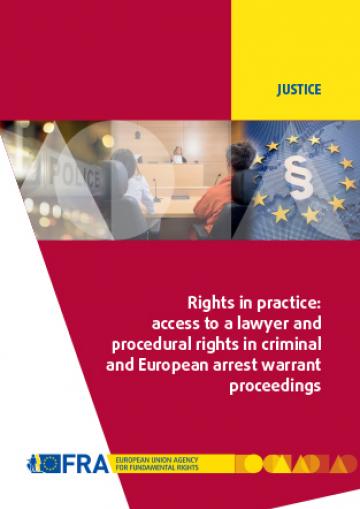Γλώσσα
English

This report looks at how these key criminal procedural rights are applied in practice. It is based on interviews with over 250 respondents in eight Member States, including judges, prosecutors, police officers, lawyers, staff of bodies that monitor prisons, as well as defendants. In highlighting diverse challenges, the report aims to spur efforts to ensure that criminal procedural rights are applied both effectively and consistently throughout the EU.